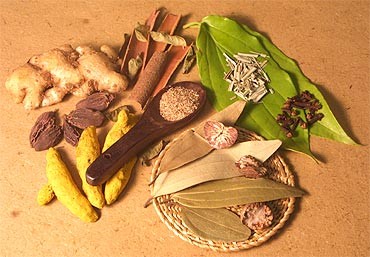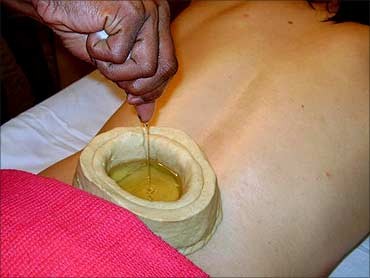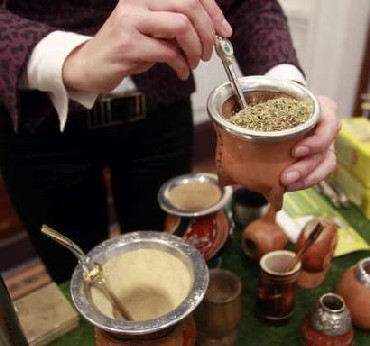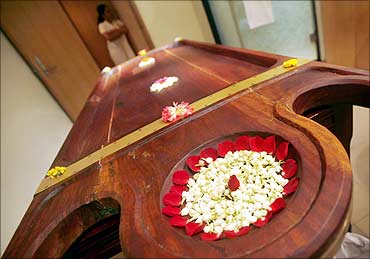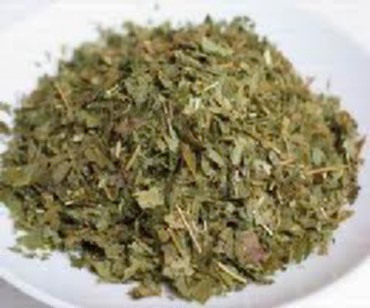 | « Back to article | Print this article |
Herbal drug cos to swallow bitter European pills
UK health regulatory authority enforces strict norms for export, in wake of EU directive.
Indian ayurvedic medicines manufacturers are set to face a tough time as far as exports to European countries are concerned.
Domestic majors, such as Himalaya and Baidyanath, are in a dilemma after the UK Medicines and Healthcare products Regulatory Agency made traditional herbal registration mandatory for herbal medicines.
The health regulatory authority introduced the new norms with effect from May 1.
Click NEXT to read further. . .
Herbal drug cos to swallow bitter European pills
According to European Traditional Herbal Medicinal Products directive issued in 2004, all over-the-counter manufactured herbal medicinal products placed in the UK and European markets will need either a traditional herbal registration or product licence.
The European Commission announced earlier this year that all member-countries would have to implement this from May.
Although the companies are busy filing new registrations, the cost of registering products and indefinite delay for the process remain a major concern.
"The main concern is lack of a single authority for registering the product. We will have to register products in each country under European Union and it will be a costly process.
Click NEXT to read further. . .
Herbal drug cos to swallow bitter European pills
The Indian government should help the companies subsidise the registration process," said R K Sharma, director, Baidyanath.
If not registered, products based on traditional Indian herbs such as ashvagandha, brahmi, karela, neem, shatavari, guggulu, triphala, tulsi will be banned from exporting to European countries.
However, products based on a few herbs like ashvagandha, triphala, ginger, turmeric and amla, which are already registered in European Pharmacopeia, can be distributed.
The cost of registration, which would be approximately Rs 15-20 lakh (Rs 1.5-2 million) per product and varies from country to country, may not be affordable for all exporters.
Click NEXT to read further. . .
Herbal drug cos to swallow bitter European pills
"As herbs like ashvagandha and triphala are published in British Pharmacopeia, they are valid for submission.
"The lesser popular Indian and Chinese herbs, compared to Western ones, may also affect the listing of our herbs in the European community monographs, which is a bigger challenge," said Raghuvir Singh Rathore, head, International Regulatory Affairs, the Himalaya Drug Company.
The criteria for approving a herbal drug is based on its presence in the European Union countries for 15 years and in the country of origin for a minimum of 30 years, he said.
Click NEXT to read further. . .
Herbal drug cos to swallow bitter European pills
However, he refused to disclose details of Himalaya's drugs being sold in Europe.
The Ayurvedic Drug Manufacturers' Association is also concerned over the lack of interest from the Indian government on this issue.
"The government has not shown any interest in this matter. We have urged the government to seek observer status for India at the EU meetings. As an observer, India would be allowed to be part of the discussions and decisions on the matter," said Chandrakant Bhanusali, secretary, ADMA.
Click NEXT to read further. . .
Herbal drug cos to swallow bitter European pills
"Immediately, we will not be affected since we sell dietary supplements.
"However, we believe the new norm is only a precursor and other major regulations will affect the sales of supplements in the future," said Ranjit Puranik, CEO, Shree Dhootapapeshwar Ltd.
China has already posted itself as an observer in the issue, while India is yet to take any major action as far as the traditional herbal registration is concerned, he said.
In 2004, a study released by the Journal of the American Medical Association had alleged that 14 products, made by firms like Dabur, Zandu, Baidyanath and Himalaya, contained harmful levels of lead, mercury and arsenic.
Click NEXT to read further. . .Herbal drug cos to swallow bitter European pills
Following the study, UK MHRA, Health Canada and Singapore's regulator HSA had issued warnings.
In 2005, UK MHRA directed people to stop consuming certain Indian ayurvedic drugs -- Karela (Himalaya Drug Co), Safi (Hamdard-WAKF-India), Maha Sudarshan Churna Powder (Zandu Pharmaceuticals). UK MHRA had also advised caution against Yograj guggul tablets (Zandu Pharmaceutcals), Sudarshan tablets (Zandu Pharmaceuticals) and Shilajit capsules (Dabur India Ltd.)
The incident also led India's ministry of health to make heavy metal tests mandatory for herbal, ayurvedic, siddha and unani medicine exports from January 1, 2006.
